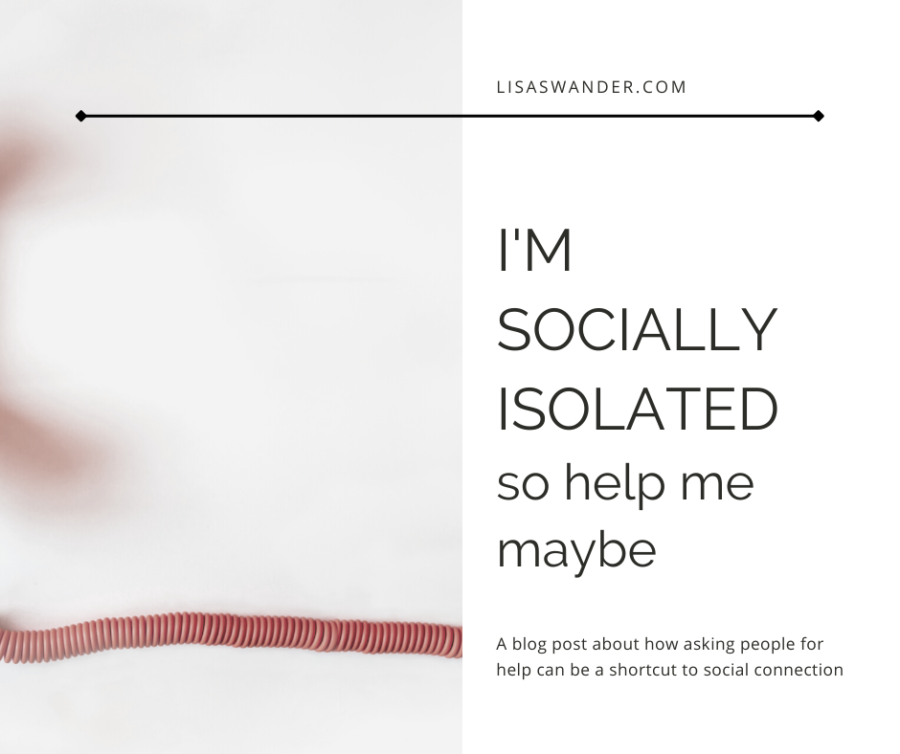I don’t love chatting people up, as we have established in many previous posts, but I always considered myself fairly competent at it. I can make a joke about the weather. I know what to do with my eyebrows and how to swap personal details that aren’t too personal. I read The Like Switch; I can be personable.
That was before COVID, however. Now we’re nearly a year in, I’m working from home, staying in as much as possible, and watching my social skills crawl back into my brain like an overfed groundhog.
Talking to people now is HARD. It’s the masks, for one thing. If you’re wearing a decent mask and are not a member of a live theater troupe, you sound like you’re underwater. We’re all repeating ourselves every other sentence, and the only clear sounds are the cries of conversational rhythm dying.
Also, I am out of chit chat practice. My only coworker mostly naps and chews cabinetry and she is an absolutely terrible listener. Sure, I talk with my immediate family, but that’s not chit chat. That’s just what we want for dinner, or how long the dog has been out, or who left a banana peel on the bathroom counter again.
Besides, what the heck do people and I even have to talk about? Staying in our homes? Waiting on backordered office supplies to arrive? Vacillating between buying the DashPass or continuing to live in denial about our ability to change? …Politics?
It’s tempting to just lean into it, to swaddle myself in one of those giant hoodie blanket things and await death silent and alone, but that presents a few problems.
For one, as I learned several weeks ago, not talking to people makes your brain deteriorate. For another, perhaps even worse, being alone apparently reduces your ability to empathize. Nationally, empathy seems to have declined while isolation has gone up, and I don’t need to tell you that we can’t afford any more cuts in that department.
Conversely and almost unbelievably, having incidental conversations with strangers makes people feel happier. I know; I had the same argument with this article that you are having now. The cauliflower crust in my grocery cart is not a conversation starter, social scientists. But it does appear that although none of us actually want that guy on the airplane to ask if the book is any good, we feel measurably better after the interaction is over.
So, keeping all of this in mind, I took the advice I heard from two different neuroscientists (Dr. Sanjay Gupta in his excellent new book and Jamil Zaki on Armchair Expert) this week: if you’re having trouble connecting with people, try asking for help with something.
Apparently this is a major empathy builder and has a kind of relationship level-jumping magic. Helping others makes us feel good, and so if you can give someone the opportunity to help you, positive vibes will abound.
Teachers know this, of course. Every squirrely, defiant, or otherwise challenging student has been handed a stack of papers to staple at some point. I feigned technological incompetence many times over the years so I could ask the kid rolling spitwads to jiggle an HDMI cable. But, as with much about teaching, I forgot that this stuff works with grownups, too.
I gave it a shot during my son’s basketball practice, which is an environment about as comfortable to me as the Death Star trash compactor. Normally I read a book (just in case anyone wondered if the kid asking what all this has to do with ancient Mesopotamia came by his athletic prowess from his mother), but I decided I could do a little better. My brain and empathy deserve a little better.
So, I sidled up to one of the other parents, one whose son does not appear to be thinking about giant ground sloths during shooting drills, and asked how he got his kid to be so committed to basketball.
He was very kind and friendly. He said things about one hundred and ten percent and love of the game and we make him practice, all of which have limited applicability in my household, but that didn’t matter. Prehistoric mammals and free throws are equally valid areas of thought, in my opinion.
What mattered was that we chatted for a minute or two. I walked away feeling better than I did a hundred pages into Anne Lamott, which is saying something. I made a small connection with a human I assumed I had nothing in common with, and that, by a magnitude of three hundred million or so, might help us out of this national empathy jam we’ve gotten ourselves into.
So whether you’re feeling socially awkward or just socially averse, maybe try it this week. Ask a stranger where they got their fabulous boots. Ask an irritating coworker how to unjam the copier. Ask an acquaintance or a challenging family member or a friend you haven’t seen in a while for some little piece of their expertise, because everyone is an expert in something.
If we all do it, not only will we be a little more prepared for post-pandemic socializing, but I think we’ll also be a little more connected, which increasingly seems to be the solution to all that ails us. It’s worth a shot.


